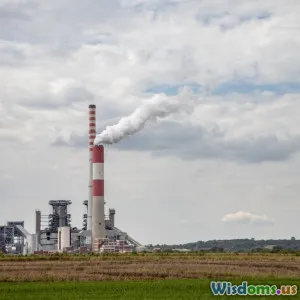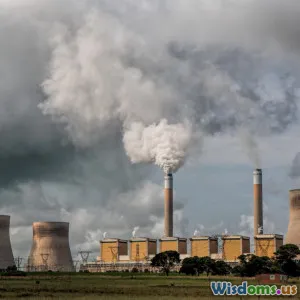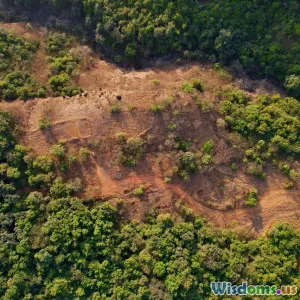
Understanding Climate Change and Its Effects
6 min read Explore the complex impacts of climate change and learn how they affect our planet and future. (0 Reviews)
Understanding Climate Change and Its Effects
Climate change has become one of the most pressing issues of our time, impacting not only the environment but also our health, economy, and overall quality of life. Understanding the intricacies of climate change is essential for making informed decisions and taking action towards sustainability. In this article, we will explore what climate change is, its causes, effects, and practical solutions that can help mitigate its impact.
What is Climate Change?
Climate change refers to significant changes in global temperatures and weather patterns over time. While climate change is a natural phenomenon, human activities have accelerated this process, leading to unprecedented changes in our climate system. The primary driver of contemporary climate change is the increase in greenhouse gases (GHGs) like carbon dioxide (CO2) and methane (CH4) in the atmosphere, primarily due to fossil fuel combustion, deforestation, and industrial processes.
Causes of Climate Change
- Greenhouse Gas Emissions: The burning of fossil fuels for energy and transportation releases large amounts of CO2 and other GHGs.
- Deforestation: Trees absorb CO2, and when forests are cleared for agriculture or urban development, not only is this carbon storage lost, but the carbon stored in trees is also released back into the atmosphere.
- Industrial Activities: Manufacturing processes contribute to GHG emissions, as do waste management practices that result in methane emissions from landfills.
- Agriculture: Certain agricultural practices, including livestock production, release significant amounts of methane and nitrous oxide, potent GHGs.
Effects of Climate Change
The effects of climate change are far-reaching and varied, impacting ecosystems, weather patterns, and human health. Here are some of the key effects:
1. Rising Temperatures
Global temperatures have been steadily increasing, leading to heatwaves, droughts, and altered precipitation patterns. These changes can disrupt agricultural production, leading to food shortages and increased prices.
2. Melting Ice Caps and Rising Sea Levels
The polar ice caps and glaciers are melting at an alarming rate, contributing to rising sea levels. Coastal communities are increasingly at risk of flooding, and some may face displacement due to loss of land.
3. Extreme Weather Events
Climate change is linked to an increase in the frequency and severity of extreme weather events such as hurricanes, floods, and wildfires. These events can have devastating effects on communities and economies.
4. Impact on Biodiversity
Many species are struggling to adapt to rapid climate changes, leading to shifts in biodiversity. Some species face extinction, while others may thrive, leading to imbalances in ecosystems.
5. Health Risks
Climate change poses direct and indirect health risks. Heat-related illnesses, respiratory issues from air pollution, and the spread of vector-borne diseases are just a few examples of how our health can be affected.
Practical Solutions for Mitigating Climate Change
While the challenges posed by climate change may seem daunting, there are practical solutions that individuals, communities, and governments can implement:
- Transition to Renewable Energy: Investing in solar, wind, and other renewable energy sources can significantly reduce GHG emissions.
- Energy Efficiency: Enhancing energy efficiency in homes, businesses, and transportation can lower energy consumption and emissions.
- Reforestation and Afforestation: Planting trees and restoring forests can help absorb CO2 from the atmosphere.
- Sustainable Agriculture: Implementing sustainable farming practices can reduce emissions from agriculture and enhance soil health.
- Advocacy and Education: Raising awareness about climate change and advocating for policies that address its causes can lead to meaningful change at local, national, and global levels.
Conclusion
Understanding climate change and its effects is crucial for addressing one of the most significant challenges of our time. By recognizing the causes and impacts of climate change, we can take informed actions to mitigate its effects and work towards a more sustainable future. Collective efforts, from individuals to governments, are essential to combat climate change and protect our planet for future generations. Together, we can make a difference, one step at a time.
Rate the Post
User Reviews
Popular Posts





















